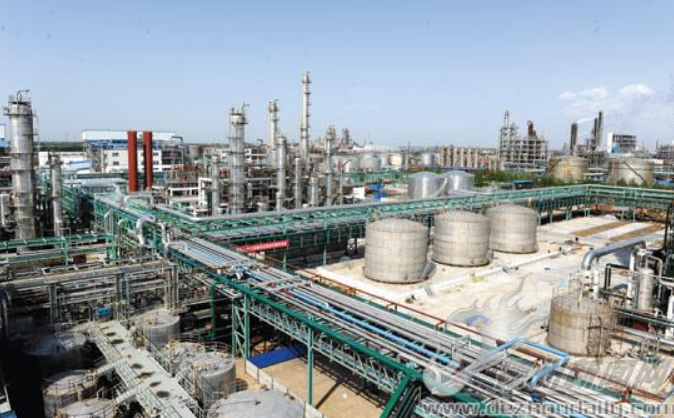How Is Mono Ethylene Glycol Manufactured?
Mono Ethylene Glycol (MEG) is a vital chemical compound used in various industries, including automotive, textiles, and pharmaceuticals. Its primary application lies in the production of polyester fibers and resins. Understanding the manufacturing process of MEG is crucial for industries reliant on its production. Let's delve into the intricacies of how MEG is manufactured.
Monoethyle Glycol Plant / MEG Production
Introduction to Mono Ethylene Glycol
Mono Ethylene Glycol, with the chemical formula C₂H₆O₂, is a colorless, odorless, and viscous liquid. It is an organic compound and belongs to the group of glycols, which are dihydric alcohols containing two hydroxyl groups (-OH). MEG is hygroscopic, meaning it readily absorbs water from the atmosphere.
Raw Materials
The manufacturing process of MEG primarily involves the oxidation of ethylene, a readily available hydrocarbon. The key raw materials required for MEG production include ethylene, oxygen, and water. Ethylene, obtained from sources like crude oil or natural gas, serves as the primary feedstock.
Oxidation Process
1. Ethylene Oxidation
The manufacturing process begins with the oxidation of ethylene to form ethylene oxide (EO). This step typically employs a catalyst, such as silver or platinum, to facilitate the reaction. The reaction can be represented as follows:
C2H4+O2→C2H4O
2. Ethylene Oxide Hydration
Ethylene oxide is then hydrated to form ethylene glycol. This step involves the reaction of ethylene oxide with water, usually under elevated temperature and pressure conditions, and with the help of a catalyst such as sulfuric acid. The reaction can be represented as follows:
C2H4O+H2O→C2H6O2
Purification Process
The crude ethylene glycol obtained from the hydration process undergoes purification to remove impurities and by-products. Various purification techniques such as distillation, filtration, and chemical treatments are employed to achieve the desired purity level of MEG.
Distillation
Distillation is a crucial step in the purification process of MEG. It involves heating the crude ethylene glycol to its boiling point, allowing it to vaporize, and then condensing the vapor back into liquid form. This process helps separate MEG from other components present in the crude mixture.
Filtration
Filtration is used to remove solid impurities and any remaining catalyst residues from the distilled MEG. This ensures the final product meets the required quality standards.
Chemical Treatments
Chemical treatments such as neutralization and decolorization are performed to further enhance the purity of MEG. These processes help eliminate any remaining acidic or colored impurities, resulting in a high-quality end product.
Final Product
After undergoing the purification process, the final product obtained is high-purity mono ethylene glycol, ready for various industrial applications. It is typically stored and transported in bulk containers such as tankers or drums, ensuring its safe delivery to end-users.
Conclusion
The manufacturing process of mono ethylene glycol involves several intricate steps, starting from the oxidation of ethylene to the purification of crude ethylene glycol. Each step is crucial in ensuring the final product meets the required quality standards for its diverse industrial applications. Understanding this process is essential for industries reliant on MEG production.
In conclusion, the production of mono ethylene glycol is a complex yet crucial process that serves various industries worldwide. By understanding the intricacies of its manufacturing process, industries can ensure a stable supply of this essential chemical compound for their operations. If you're looking for a trusted MEG Plant supplier, feel free to contact us for assistance.
318
0
0



Comments
All Comments (0)